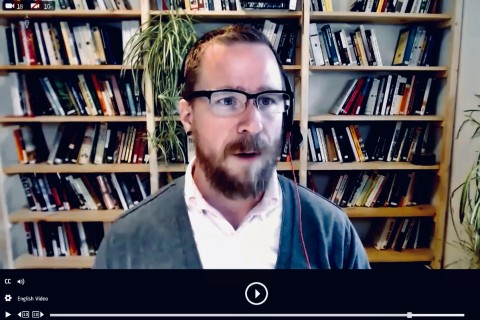
To the Standing Committee on Industry, Science and Technology, regarding a K-shaped pandemic recovery:
The pandemic taught us many lessons. Most importantly, it taught us that we are inextricably dependent on each other. Individualism is a myth.
Part of this lesson is that government is a vital institution for equitable social protection and coordination. Despite many government failures during the pandemic, no amount of market-driven, profit-seeking, private sector initiative can replace government’s unique roles, especially its fiscal capabilities.
There is almost unanimous agreement that the federal government did the right thing stepping in with unprecedented levels of financial support. This spending served a dual purpose. Most importantly, it put money in the accounts of people who needed it. But it also kept the financial system from seizing up, which would have added a financial crisis on top of the health crisis.
Of course, deficit ‘Chicken Littles’ are already proclaiming that the debt sky is falling. However, we just need to remember that federal deficits are non-federal surpluses. The debt is money the government spent and has not taxed back yet.
While we slowly move out of the pandemic economy, we must maintain financial supports. The recovery, like the pandemic, will be K-shaped. The government can make sure no one falls through the cracks.
Unfortunately, the pandemic is not the only crisis. We still have the climate crisis. The recovery is a chance for the federal government to take the pandemic’s lessons and guide us toward a just and sustainable economy. It can use its unique fiscal capabilities to create greater certainty through decisive leadership. In the words of economist Mariana Mazzucato, we need a mission-oriented economy.
The economy of the future will not look like the economy of the past. There is growing support to wind down high emission industries more quickly, even from workers in those industries. We should be helping workers transition with income supports, training, and employment.
The government should invest in low carbon care institutions. Budget 2021 showed we can get creative on childcare. Now, let’s do the same with pharmacare, dental care, mental healthcare, elder care, ecological care. If these are priorities—and they should be—then they need to be funded like priorities.
There is much work to be done achieving a just transition. We have the necessary material, knowledge, and labour resources. But we need the government to mobilize its financial resources. Stop trying to entice the private sector towards sustainability with tax incentives and cheap lending from the Infrastructure Bank. If the government spends what is needed to transform existing industries, and develop new ones, the private sector will follow.
Taxes have an essential role in creating a just, sustainable economy.
We commend the current government for the carbon tax, which reduces the carbon subsidy reaped by businesses in high emission industries. However, we need to go further, faster. We need a border adjustment, so foreign emitters do not get preferential treatment. We need to support households and communities as they transition from dependence on artificially cheap fossil fuels, which malformed our local economies.
The carbon subsidy has disproportionately benefited those at the top of our economic hierarchy. Taxes have a role to play there as well.
The Biden administration is leaving behind the decades-long folly of trickle-down policies by increasing the U.S. corporate income tax rate, imposing a global minimum corporate tax rate, as well as a minimum tax on book income. Even the Conservative government in the UK plans to increase the corporate tax rate. We should follow their lead and then go farther. End capital gains exemptions. Close loopholes. Shut down tax havens. Bring in a progressive wealth tax.
Money spent into the economy circulates as expenditures become incomes become expenditures. However, we have a trickle-up economy. As the money circulates, portions are relentlessly syphoned off as interest and profit, which flow to asset owners. Because asset ownership is highly unequal, the rich get richer simply because they are already rich. They did not earn it. They do not need it. Worse, they use that money to gain political advantages and preferential rules.
Progressive tax measures reduce inequality and the illegitimate power of the wealthy. They also help to keep the money circulating. To build our just society, the government should spend money into the economy where it is useful and needed, and it should tax the money out from where it is not."
FURTHER COMMENT
The private sector will not take us where we need to go. We need the government to use its financial capacities to fund necessary investments and reduce inequality. We need to work with Indigenous communities, as well as industrial and ecological experts, to figure out how to extract natural resources in ways that minimize environmental disturbance and maximize our technological potential. Public investment can transform industry, creating useful jobs as well as important goods and services, and a healthy, growing tax base.
VIDEO (11:08 - 11:14, 12:42 - 12:45)
